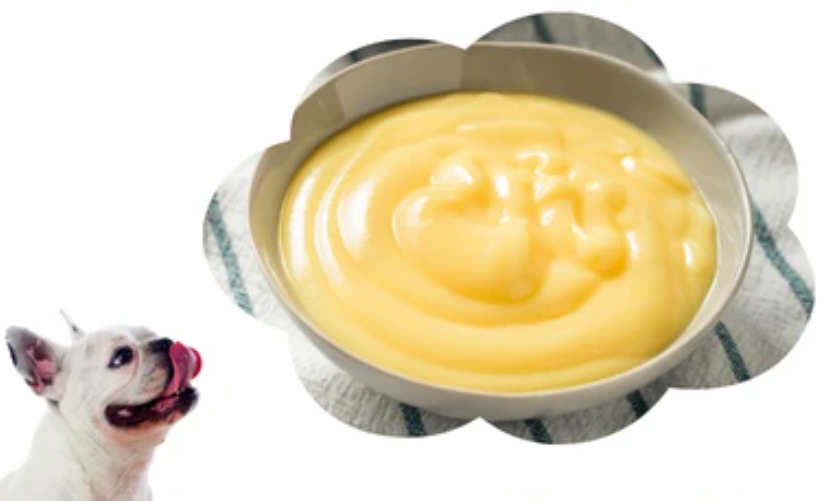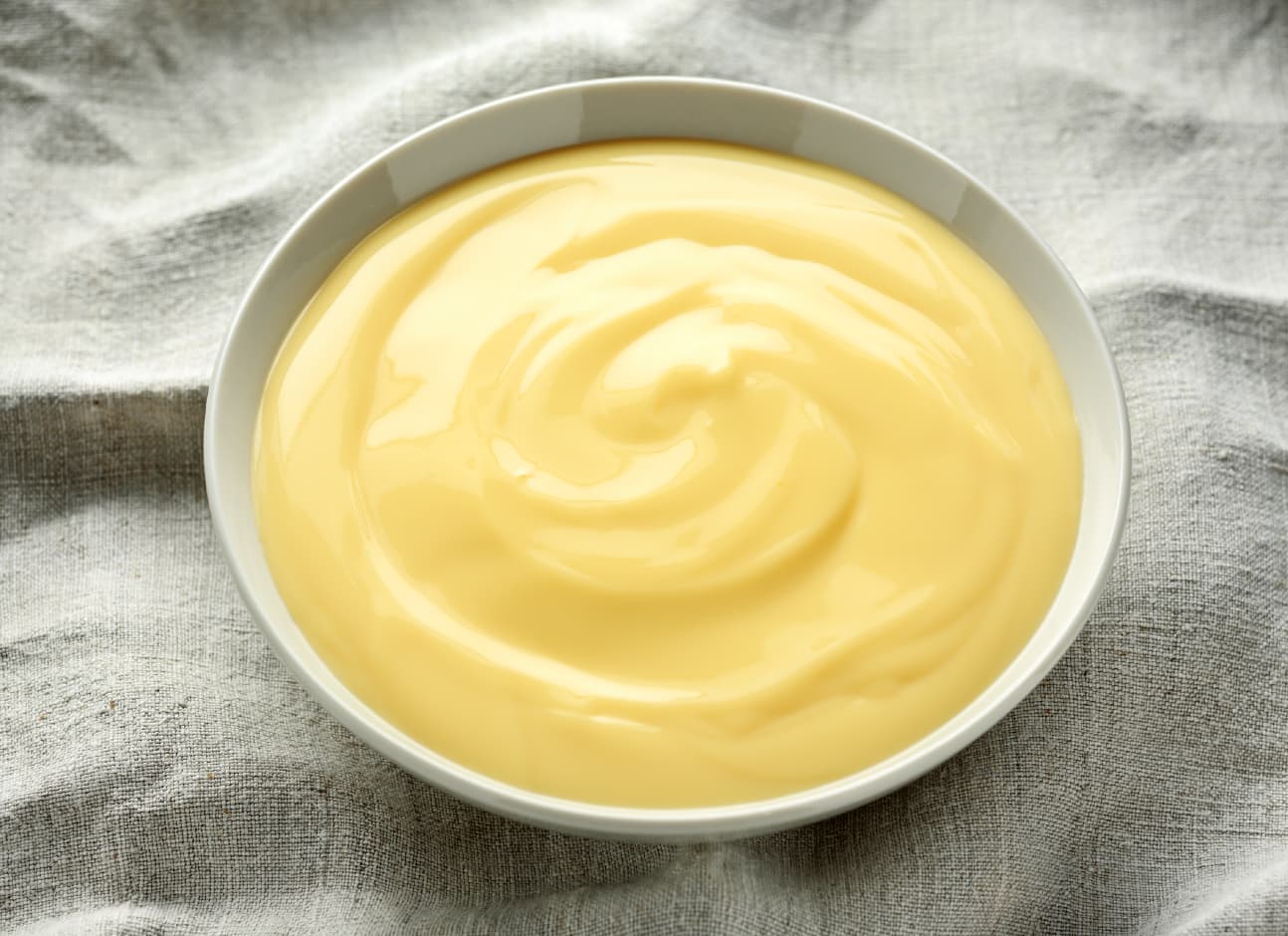Reviewed by Dr. Sarah Yosry
Updated on 12/14/2024
Reading time 3 min.
Overview
Severity: Low
Life stage: All
Custard is one of the greatest sweets available, and it pairs nicely with a steaming apple pie or a sweet crumble. Because custard is made primarily of milk and eggs, you may question if dogs can consume it as a special treat. But is it safe for your dog to consume custard, or will it give them an upset stomach?
Can dogs eat custard?
Your dog should not consume custard, or at least not in significant quantities. Custard is unhealthy for dogs, and excessive consumption can cause vomiting and diarrhea.
However, custard typically does not contain toxic components; thus, it is still deemed “safe” for dogs to consume in tiny amounts. Vanilla, however, is a somewhat questionable element regarding our animal pals.
Nevertheless, some custards may contain substances that are toxic to our pets. Always check the labels of sweets and desserts to ensure they do not contain Xylitol, a sweetener that is extremely harmful to dogs. Chocolate-flavored custard is also a no-go for Fido, as chocolate is highly toxic to dogs.
If your dog picks up a lump of custard that you dropped on the floor, or if you allow your dog to lick your spoon, they will likely be fine.
Please don’t do it frequently; don’t intentionally give your dog dessert after dinner.
Can dogs eat fresh custard?
The fresh or homemade custard should not contain anything toxic to dogs; thus, giving your dog a lick is not instantly dangerous. Fresh custard contains a lot of creams and milk, and dogs are typically lactose intolerant and unable to digest dairy well. Therefore, excessive consumption of custard could result in vomiting, diarrhea, gastrointestinal pain, and gas, which is unpleasant not only for your dog but also for its owners to deal with. Fresh custard, like other types, has a great deal of sugar. Your dog can safely consume a tiny bit of sugar on a sporadic basis in minute quantities. However, excessive sugar consumption can lead to hyperactivity, weight gain, and the development of diabetes.

Regardless of the type of custard you’re eating, whether it’s canned, fresh, homemade, or powdered, it’s better not to feed it to Fido.
Is custard terrible for dogs?
Custard is considered “bad” for dogs because excessive consumption will make them sick.
The primary issue with custard is that it is high in calories, fat, and sugar, which can contribute to unhealthy weight gain if your dog consumes excessive amounts.
Custard has an abundance of whole milk and cream. This adds a great deal of fat to the delectable dessert and a great deal of dairy. Adult dogs are lactose intolerant because once weaned from their mother’s milk; their bodies stop generating lactase, the enzyme responsible for digesting the sugars in dairy products.
Because they lack this enzyme, your dog cannot digest dairy particularly well, which can lead to the same issues as lactose intolerance in people. In other words, your dog will experience frequent bowel motions, loose stool, diarrhea, gas, abdominal pain, and flatulence.
Although bloating is quite common and considered a minor condition for humans, it may be life-threatening for dogs.
If your dog appears to be gassy and suffering from bloat, you must take them to the veterinarian immediately.
Conclusion
Your dog should not consume custard. Although it is typically non-toxic and “safe,” it is not beneficial for your furry buddy, and they should not consume it frequently or in large quantities. A minimal amount of custard, such as licking the back of the spoon on exceptional occasions, should be acceptable. Nonetheless, if you want to give your dog a sweet treat, you can make them some sup-aw easy healthy doggie ice lollies or choose a healthy doggy treat they can have more frequently.
Share this, choose your platform!
Writen by
Dr. Sarah Yosry
DVM
A product of a rich Australian/Egyptian heritage, Dr. Sarah Yosry stands as a testament to the union of diverse cultures and a shared love for animals….


